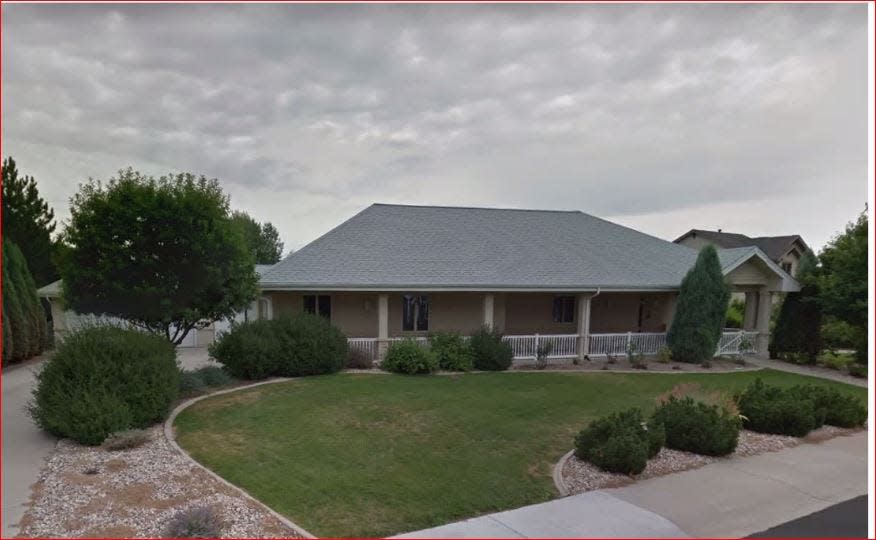Neighbors appeal approval of group home for those with dementia in south Fort Collins

More than a dozen neighbors of a proposed group home for adults suffering from dementia have appealed a Fort Collins Planning & Zoning Commission decision approving the plan for 636 Castle Ridge Court.
The commission voted 3-2 Dec. 15 to approve the home for up to 10 residents over the objections of neighbors who said the private road is too narrow to accommodate the increased traffic and on-street parking associated with the group home.
Commissioners David Katz, Julie Stackhouse and Adam Sass voted yes, saying the project was consistent with the city's land use code. Outgoing commissioners Per Hogestad and Jeffrey Schneider voted no, saying it was incompatible with the neighborhood. Commissioner Ted Shepard recused himself. Commissioner Michelle Haefele was absent.
Dr. Steve Sunderman filed an appeal of the approval Dec. 21. Kurt Johnson and 11 neighbors filed a separate appeal Dec. 28. City Council is scheduled to hear the appeal March 7.
Both appeals claim the commission failed to property interpret the city's land use code. Sunderman's appeal also contends the commission failed to conduct a fair hearing, ignored previously established rules of procedure and was biased against the neighbors.
The commission in March unanimously denied a proposal for larger, 16-person group home, citing lack of parking in the residential neighborhood but approved the scaled-down plan for 10 residents.
Property owners Eric Shenk and Xioma Diaz came back with a plan for 10 residents and two employees per shift, reducing the number of parking spaces they would need to provide. Land planner Stephanie Hansen told commissioners the group home would use a parking app to control where visitors and staff parked, although commissioners doubted the app would be used for long.
Several neighbors argued the location on the private drive was not compatible with the neighborhood and failed to provide adequate parking for staff, other service providers and visitors who would come and go throughout the day.
Sunderman, speaking on behalf of several neighbors, said there was widespread opposition to the project among residents.
"Objections from residents is universal," he told commissioners, listing a litany of complaints including lack of communication with property owners, additional traffic and parking difficulties on the private road, incompatibility with the neighborhood and a city staff intent on "pushing the project forward."
"We will use every legal avenue available to protect our homes and community from anyone who would wrongfully try to enrich themselves in this way," he said.
Sunderman said in his appeal neighbors would suffer "major impact," including decreased property values if the project were approved.
"The proposal has no balance with existing residential character," he wrote. "It is a plan to transform one home into a large, high-volume and high-traffic business for the profit of one homeowner at tremendous expense to all others." Sunderman said staff and planning and zoning chairman David Katz failed to follow required procedures, broke promises to comply with required procedures and meetings, and repeatedly tried to silence opponents.
"Chairman Katz drove this meeting with a clear political ideology and with intense anger against us for issuing our objections," Sunderman wrote. "His clearly biased vote should not be allowed."
Several members of the public donated the time they would have been allotted to speak at the P&Z hearing to Sunderman, but some were not in the hearing chambers. Katz sought to disqualify the pooling of time for those not in attendance. Ultimately, Sunderman was given 18 minutes — beyond the 3 minutes per person rule — to speak on behalf of himself and five others who were present in City Council chambers.
Johnson's appeal on the behalf of a group of 12 neighbors echoes previous statements that Castle Ridge Court is a private street, which the city has "declared as substandard." When the neighborhood was first built the developer received a variance to the minimum street width based on low density residential use with every house required to have a minimum of a three-car garage, he wrote in the appeal. "This was the only way to ensure that the narrow streets could provide for appropriate and safe ingress and egress for residents, visitors and emergency services."
Hansen, the city land use planner, said the driveway had room for five cars, including two in the garage. "This is a dubious claim," Johnson wrote in his appeal. "Even if it were true, the resultant use would still be a house with 10 residents, multiple staff, frequent deliveries, medical and family visitation, and at times a transport van ... on a street designed for single-family occupancy with three and four-car garages."
The results would be an "unworkable and unsafe one-lane street situation which P&Z denied" in March, Johnson wrote.
More news:PSD investigating high copper levels found in new Wellington school's water
This article originally appeared on Fort Collins Coloradoan: Fort Collins group home for memory care patients is approved
